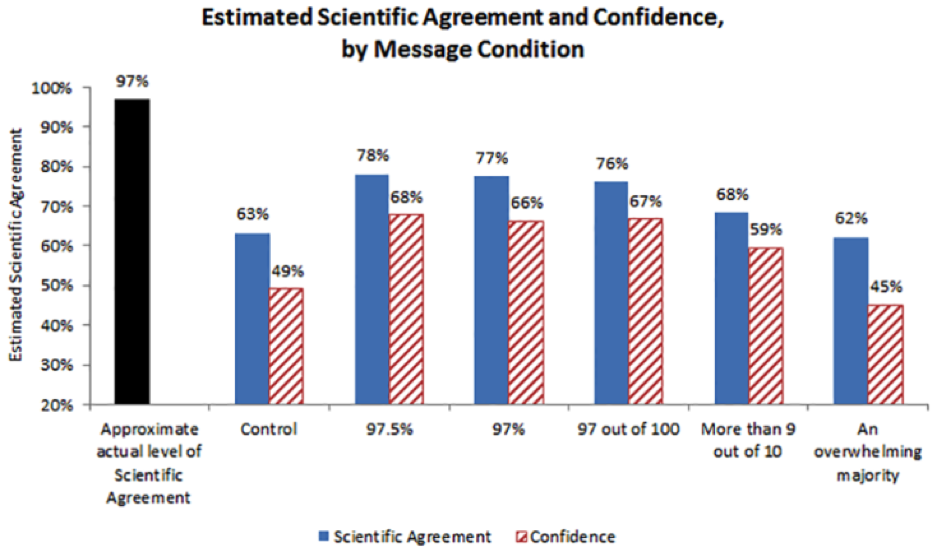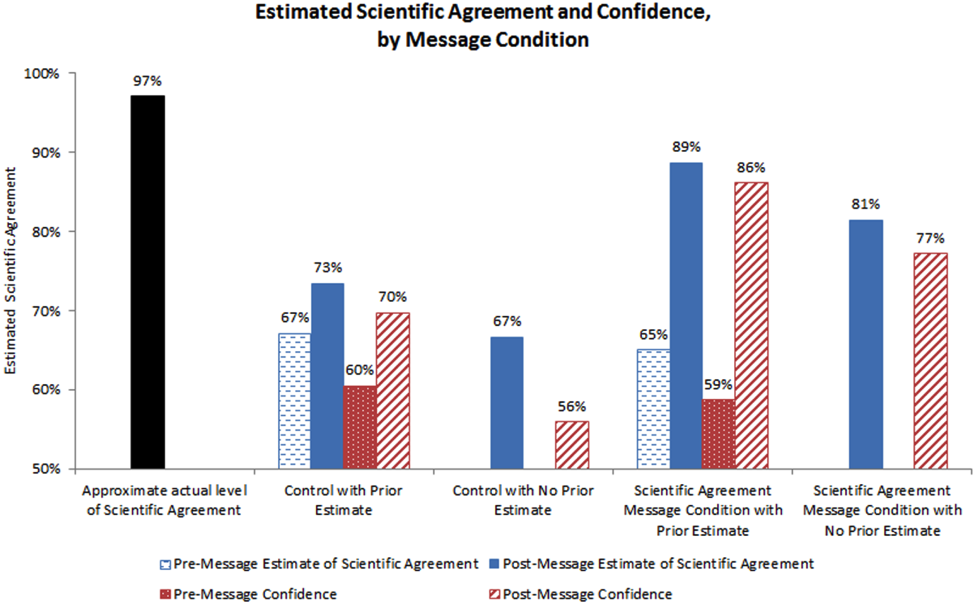Peer-Reviewed Article · Apr 7, 2015
Simple Messages Increase Understanding of the Climate Change Consensus
We are pleased to announce a newly published article: Simple Messages Help Set the Record Straight about Scientific Agreement on Human-Caused Climate Change: The Results of Two Experiments. The article was written by Teresa A. Myers, Edward Maibach, Ellen Peters, and Anthony Leiserowitz in the journal PLoS ONE.
Human-caused climate change is happening; nearly all climate scientists are convinced of this basic fact according to surveys of experts and reviews of the peer-reviewed literature. Yet, among the American public, there is widespread misunderstanding of this scientific consensus. In this paper, we report results from two experiments, conducted with national samples of American adults, that tested messages designed to convey the high level of agreement in the climate science community about human-caused climate change.
The first experiment tested hypotheses about providing numeric versus non-numeric assertions concerning the level of scientific agreement. We found that numeric statements resulted in higher estimates of the scientific agreement.
The second experiment tested the effect of eliciting respondents’ estimates of scientific agreement prior to presenting them with a statement about the level of scientific agreement. Participants who estimated the level of agreement prior to being shown the corrective statement gave higher estimates of the scientific consensus than respondents who were not asked to estimate in advance, indicating that incorporating an “estimation and reveal” technique into public communication about scientific consensus may be effective.
The interaction of messages with political ideology was also tested, and demonstrated that messages were approximately equally effective among liberals and conservatives.
Taken together, these two studies provide solid evidence that simple, clear messages can be used to increase Americans’ understanding of the scientific consensus about human-caused climate change, and their confidence in that assessment.

